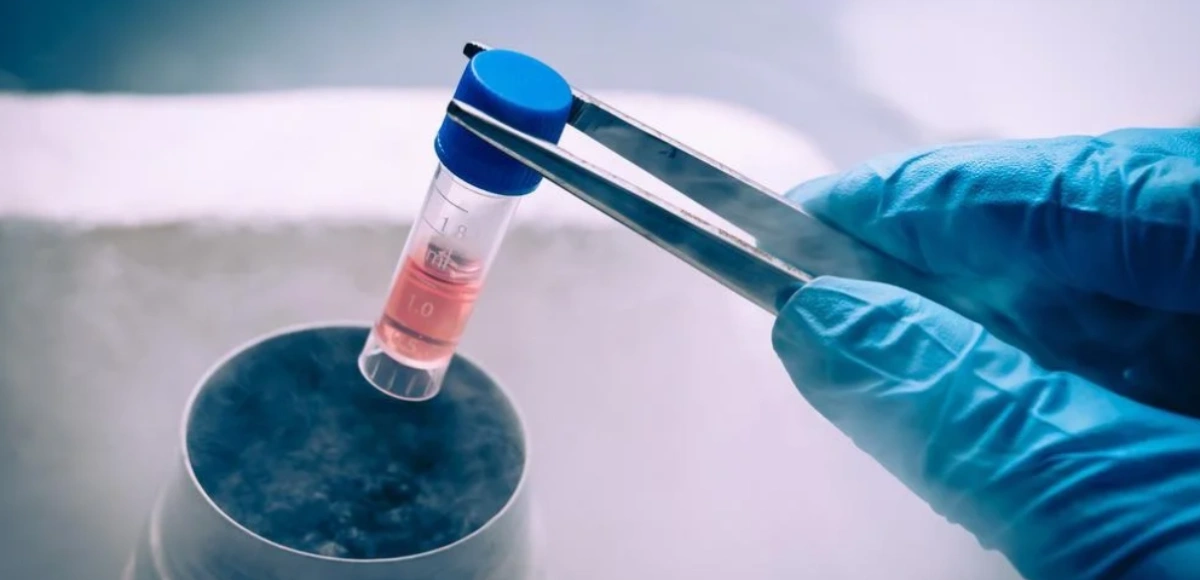Every new birth brings not only joy but also an incredible opportunity — the power of stem cells. These cells, especially those found in the umbilical cord blood, hold immense potential to treat various life-threatening diseases. In the Telugu states of Andhra Pradesh and Telangana, local stem cell banking is gaining importance as families become more aware of its long-term health benefits. Having a local stem cell bank ensures convenience, accessibility, and affordability while also fostering regional medical research and innovation.
What is Stem Cell Banking?
Stem cell banking is the process of collecting, processing, and storing stem cells derived from umbilical cord blood, cord tissue, or other biological sources under controlled cryogenic conditions. These preserved cells can later be used for life-saving medical treatments, such as for blood-related disorders, immune system diseases, and regenerative therapies.
Essentially, stem cell preservation acts as a biological insurance policy — one that can protect your family’s health in the future. When stored properly, these stem cells remain viable for years and can be used for advanced medical treatments that are continuously evolving.
Why Local Stem Cell Banking Matters in the Telugu States
1. Accessibility and Timely Availability
When a medical need arises, time plays a crucial role. Having a local stem cell bank ensures that stored samples can be accessed quickly, reducing delays caused by transportation and environmental challenges. Local banks also minimize the risk of temperature fluctuations during transport, ensuring sample quality remains intact.
2. Cost-Effective Services
Long-distance logistics, cold-chain transport, and inter-state transfers can significantly increase costs. A local stem cell bank helps reduce these expenses by offering affordable collection, storage, and retrieval within the region.
3. Promoting Regional Medical Research
Local biobanks provide valuable resources for scientific research within the Telugu states. With a stronger database of local genetic samples, researchers can study population-specific diseases and develop targeted treatment options suited for regional needs.
4. Quality and Trust
Local facilities often operate under direct supervision and can adhere more closely to regulatory and quality standards. They can also provide more transparent, personalized, and responsive customer service to local families.
Transcell: A Pioneer in Local Stem Cell Banking
Among the organizations leading this movement, Transcell Biosciences (Transcell Biolife) stands out as a trusted name in stem cell preservation and biotechnology research in the Telugu region. Founded in 2009 and headquartered in Hyderabad, Transcell combines world-class science with local expertise to make stem cell banking accessible and reliable for families across Andhra Pradesh and Telangana.
Key Services Offered by Transcell
ScellCare – Specialized in umbilical cord blood collection, processing, cryopreservation, and release, all under strict quality standards.
PREGEN – A genomics-based analytical service that studies stem cell profiles for personalized healthcare insights.
HSCT (Hematopoietic Stem Cell Transplantation) – Supports stem cell-based treatments for blood and immune-related disorders.
BARTI (BioActive Regenerative Tooth Implant) – A regenerative dental solution utilizing biological materials.
TRUCB and Population Omics Programs – Support research, plasma fractionation, and other bio-analytical applications.
Through its research-driven approach, Transcell goes beyond conventional storage to explore regenerative medicine and translational research, positioning itself as a futuristic healthcare ally in the Telugu region.
How to Choose the Right Stem Cell Bank
When selecting a stem cell bank, consider the following factors:
Licensing and Accreditation
Ensure the facility is approved by relevant regulatory authorities and adheres to national or international standards (GMP, GLP, etc.).Cryopreservation Technology
Advanced freezing methods and stable storage temperatures are essential for long-term preservation and recovery.Sample Transportation and Logistics
Efficient collection and transport ensure that samples reach the lab quickly, minimizing degradation.Recovery and Access
Verify the process for retrieving samples when needed — the simpler and quicker, the better.Transparent Cost Structure
Compare the initial collection fee, annual storage charges, and renewal terms before enrolling.Data Security and Transparency
Choose a provider that prioritizes client confidentiality and provides clear information about the sample’s condition and status.Awareness and Support
Select a company that educates families about stem cell benefits and offers consistent guidance through every stage.
Challenges and Opportunities
Challenges
Many stem cell therapies are still under clinical evaluation.
Storage and processing costs can be high for some families.
Public awareness remains limited in rural and semi-urban areas.
Quality control varies among service providers.
Opportunities
Rapid advancements in regenerative medicine.
Personalized and gene-based therapies are on the rise.
Increased research collaboration between hospitals and biobanks.
Broader acceptance of biological preservation as part of family healthcare.
Conclusion
Local stem cell banks in the Telugu states are paving the way for a health-secure future. They offer families a dependable, scientifically sound option to preserve the very essence of life — stem cells.
With organizations like Transcell, local communities can now access cutting-edge biotechnology services backed by Indian innovation, ethical standards, and advanced research capabilities.
Choosing the right stem cell bank is a long-term decision that can safeguard your family’s health for generations. By supporting local institutions, you not only secure medical readiness but also contribute to the growth of regional healthcare innovation — ensuring that the future of medicine begins right here, in the Telugu states.





